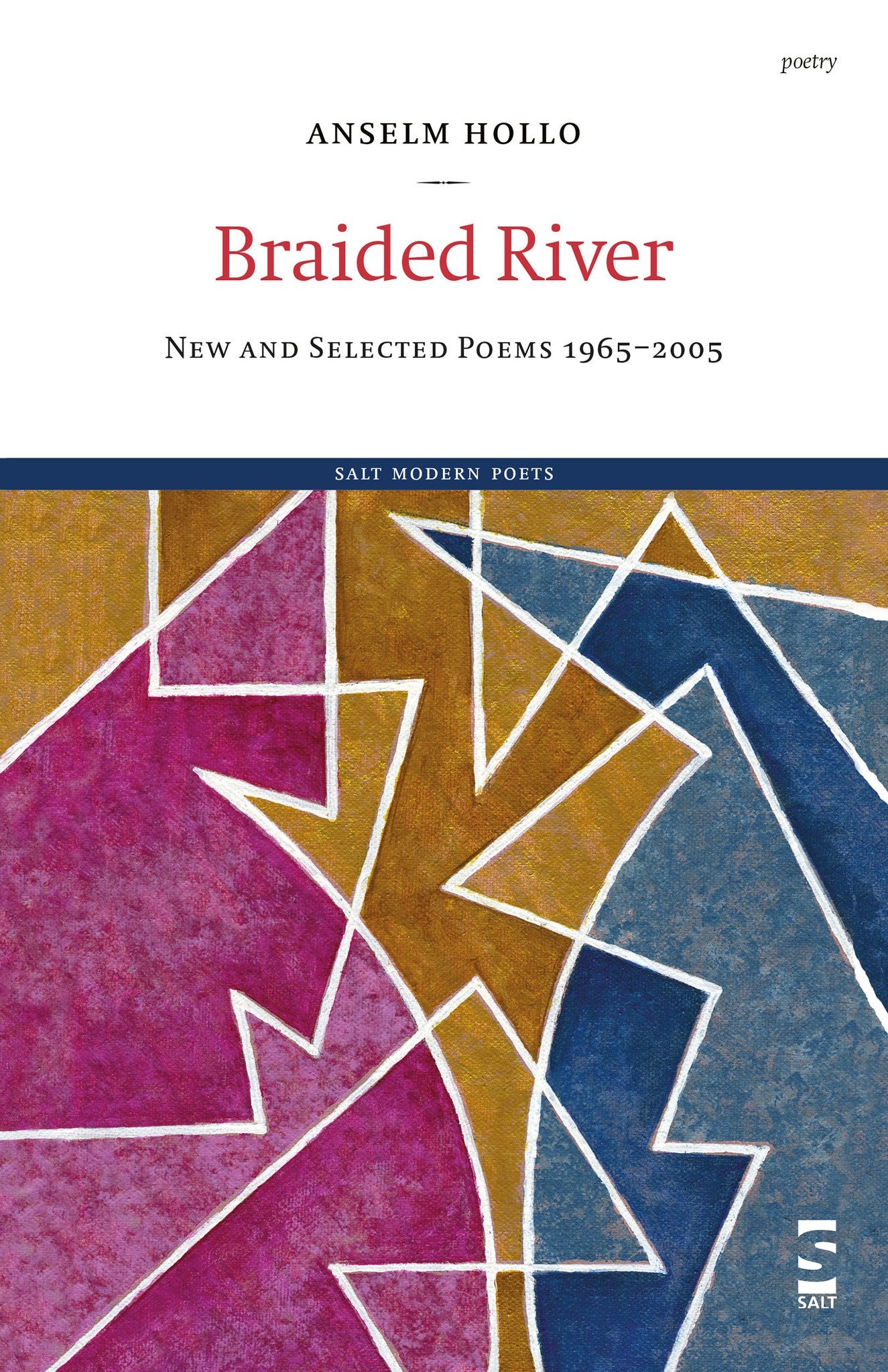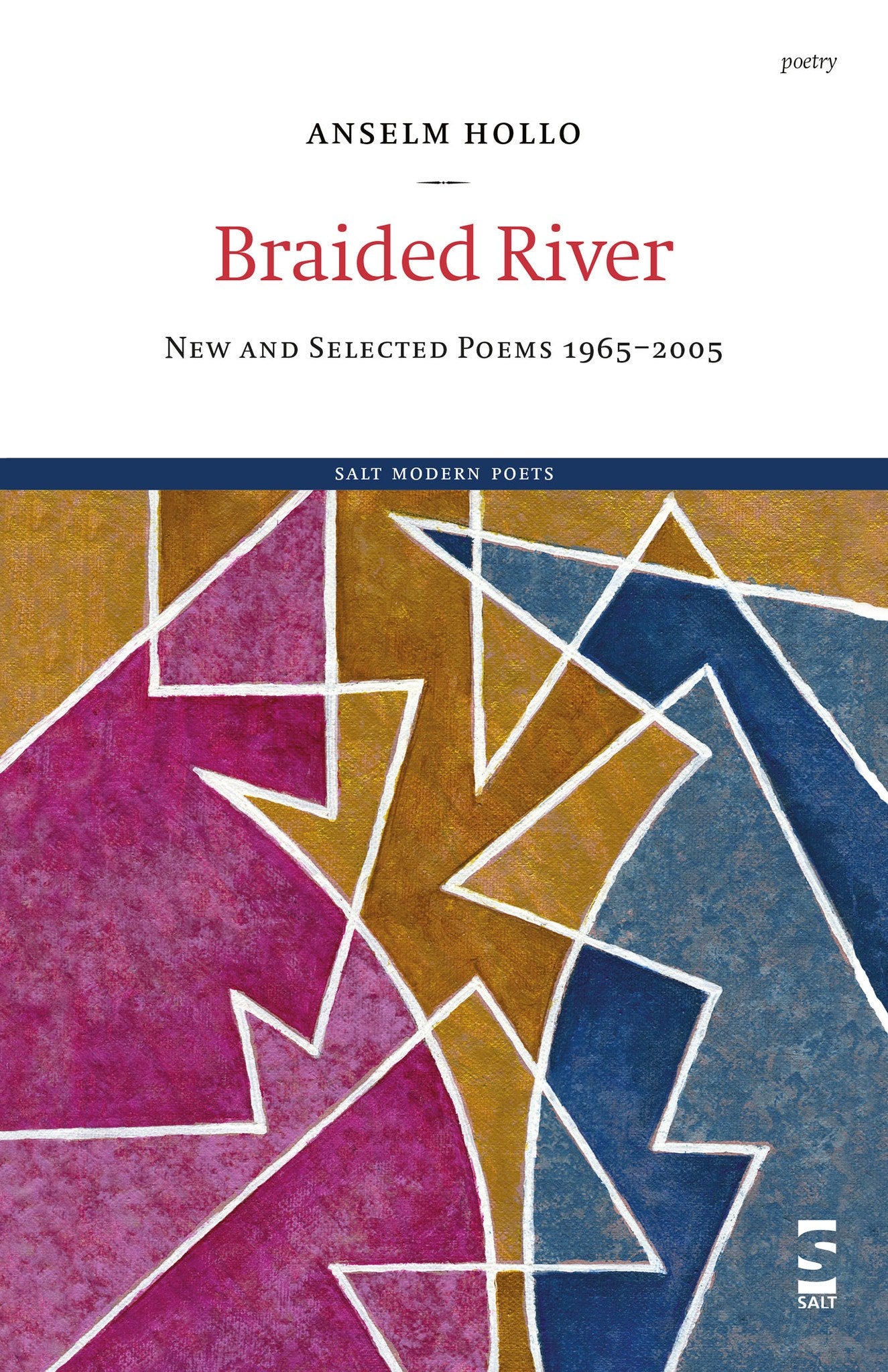Anselm Hollo
Braided River
Braided River
ISBN:9781844711093
Couldn't load pickup availability
Synopsis
Braided River consists of a major selection from forty years of Anselm Hollo’s published work, as well as a selection from his most recent, uncollected work.
It describes a “braided” lifetime’s endeavours to generate text that reflects a twentieth century existence in Europe, including England, and the United States of America.
A native of Finland, Hollo has been anthologized and discussed as a “British” poet in the Sixties and early Seventies, later on, as an “American” one.
A lifelong associate of the Beat, Black Mountain, New York (One and Two), and L=A=N=G=U=A=G=E schools of U.S. American Poetry, Hollo hopes to convey to younger writers the amazing variety and strength of the writing (both poetry and prose) that has emerged from those quarters in the past fifty-odd years, and that has been strongly connected to the most active work created in the United Kingdom. This body of work represents the United States’ true contribution to modern and postmodern world literature, and it exists, to this day, in glorious independence from what poet/essayist Charles Bernstein has called ‘official verse culture.’ Hollo’s aim is to acquaint younger writers with this vigorous, multifarious, rhizomic tradition of U.S. American writing. He also hopes to demonstrate the multi- and cross-cultural connections that have influenced it, something he practises in his Boulder classes, examining twentieth century European poetry and French poetry in particular, and in his translation workshops.
Praise for this Book
‘This is a man who sees through to the other side of empire’s lies, but who is also capable of remaining perfectly still, a rare thing, as Pascal knew. He doesn’t bother with spending the entire day in search of the mot juste, as Ford said of Conrad. He's got a million of them up his sleeve. You want mot juste? “Lookee here,” as Buddy Guy says before he rips into one of his solos: “In the land of invisible warfare, many thoughts return marked insufficient postage.”’ —Patrick Pritchett
Reviews of this Book
‘Anselm Hollo wrote The Empress Hotel Poems (there were six of them), which appeared in Jon Silkin’s magazine, Stand, in England, in 1966. I was astounded by them then, for they proposed, for the first time in my experience, that it was possible for an American poetic idiom to be adopted by a European (writing in English). It is impossible for someone under 40 (say) writing poetry in America today to imagine the narrowness of possibility allowed by the literary climate in England at that time. There were some British poets (Tom Raworth and Lee Harwood being the outstanding examples) who had the nous to overcome those severe limits, but for me, and I’m sure for many others, it was Anselm Hollo’s work that represented a crucial breakthrough, especially because Stand was a magazine with a relatively large distribution, while Raworth and Harwood were still “underground” poets at that time. What The Empress Hotel Poems illuminated was the simple fact that Kerouac, Ginsberg, O’Hara and company, were not simply icons of a seemingly fabulous culture beyond our reach, but were potential models for the future of a new poetics.’ —Doug Lang
‘On Corvus: The bedrock solidness of Anselm Hollo’s poems makes as ever a place of refuge and delight in these meager times. Thank God for his humor, else we’d all be dead.’ —Robert Creeley
‘On Corvus: For three decades Anselm Hollo has been an important figure on the intercultural poetry scene. In Outlying Districts, we see how his original work has been enriched, both technically and in content, by the contact he has had with European poets through his impressive translations.’ —James Laughlin
‘And the language – hip and jazzy, humorous, erudite and seemingly casual, overlays the serious rumblings of a non-complacent mind, always ‘very there’, wary and alert. Resonating from the onset of the moment, his poems are sharp, concise, politically prescient, and a bit world weary – as should be expected – with his awareness of and translations from an international and intercultural world of writing. Although he has made the United States his home since 1966, he still retains the valuable ability to see ‘America’ from the outside. Yet he knows that “beauty knows no ideologically correct routines.”’ —Joanne Kyger
Product Details
Extent: 260pp
Format: Paperback
Publication Date: 01-Mar-05
Publication Status: Active
Series: Salt Modern Poets
Subject: Poetry by individual poets
Trim Size: 216 x 140mm


